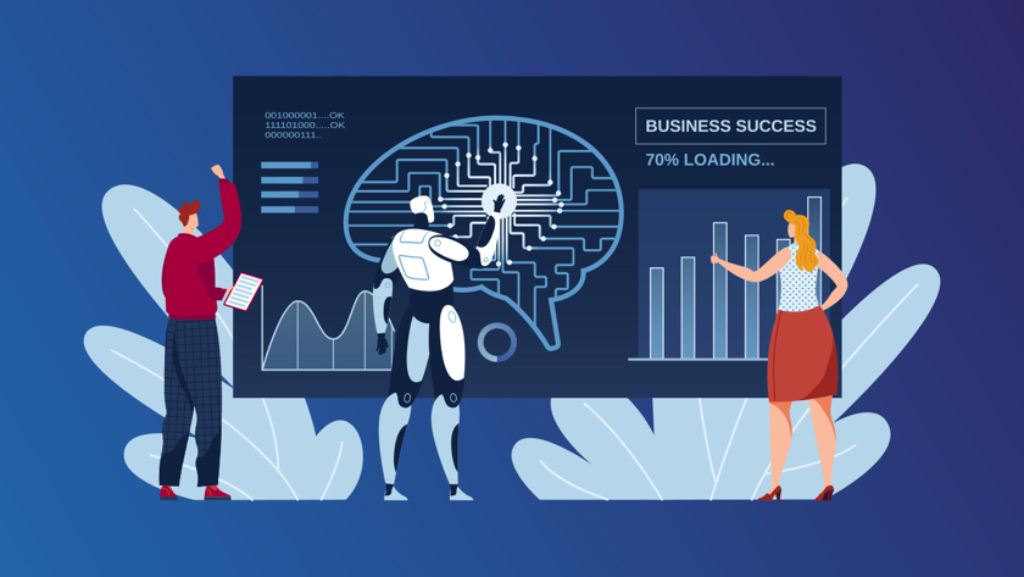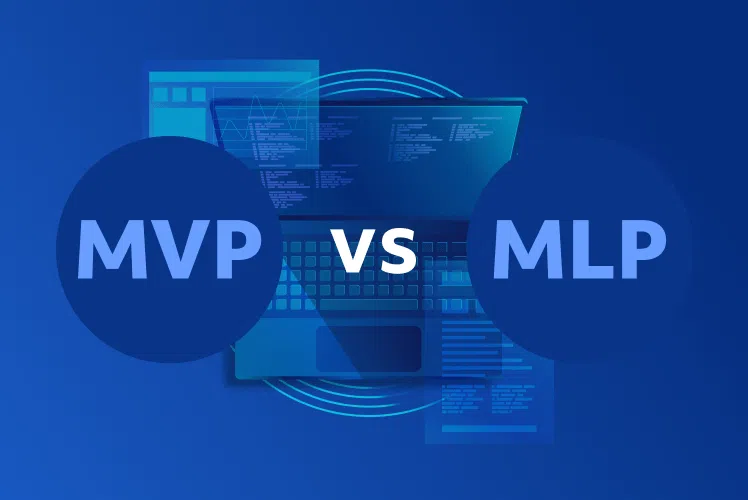Table of Contents
A decade ago, analysts used spreadsheets and socio-demographic profiles to collect, analyze and modify customer needs. All this activity did not always yield the expected results since there was too much data to process manually. But in recent years, companies started automating the majority of work and relying on technology more. And today, giant companies like Amazon, Netflix, and Spotify are outsourcing all marketing calculations to self-learning algorithms, and other companies are following suit.
Earlier in our blog, we listed the most prominent and expected machine learning trends for 2022. We’ll continue discussing the topic and will now talk about how marketing is using Artificial Intelligence and Machine Learning to improve company performance, gain more clients, and boost marketing strategy.

The state of machine learning in marketing: an overview
Machine learning is a subset of artificial intelligence that focuses on using data and algorithms to imitate the learning process of humans. In marketing, machine learning helps extract meaningful information from vast amounts of data about both customers and internal company processes. This data extends the power of marketers to create better user experiences, improve the reach of target segments, generate better responses, and increase the relevance of offers.
As companies invest in machine learning and artificial intelligence to run their businesses efficiently, it makes sense that machine learning’s market share is growing exponentially. Here are some interesting numbers to look at:
- The machine learning market will grow from $21.17 billion to $209.91 billion by 2029 (Fortune Business).
- Marketing and sales prioritize AI and machine learning more than any other department in enterprises today (Forbes).
- 83% of companies state that AI is a strategic priority for their business (Forbes).
If implemented in the right way, machine learning in marketing can serve as a solution to many modern marketing challenges. Let’s take a look at how exactly machine learning can benefit your business.
In-depth analysis of customer data
Understanding your customers’ needs is the best way to meet their demands and gain their trust. As customer data evolves and becomes richer, dealing with gigabytes of information has become quite a challenge for a human brain, but it can be easily handled by machines.
Customer data can include all kinds of information about a customer, such as demographics, purchase history, or online behavior. Machine learning thoroughly analyzes this data to help companies better understand their customers and adjust their strategies correspondingly. The analysis of customer data provides the following benefits:
- Increased customer retention: customer analysis helps you identify the reasons for customer churn and gives you an early warning that a customer may leave. In this way, you can timely take action and retain customers thus increasing the retention rate.
- Increased sales: customer analysis helps you identify factors that have both positive and negative impacts on sales (delivery time, customer location, etc.) and adjust your sales process correspondingly.
- Reduced costs: by knowing which marketing channels bring in the most valuable customers (in terms of order size, retention rates, and profitability), you can better allocate your marketing budget.
Real-time user engagement
Machine learning can analyze large amounts of data in real-time, thus providing customers with highly targeted content and increasing their engagement. Real-time algorithms work with two groups of data: customer data and operational data.
Customer data provides insights into customers’ wants, preferences, and needs. Machine learning algorithms collect this data when a user interacts with your business through a website, a mobile app, a social media platform, or any other online and offline point of interaction. Organizations that focus on customer data improve their customer experience much faster and more accurately.
Operational data is information about your business processes (the data that is produced during the course of your company’s daily activities) and user experience (various transactions, actions, and decisions made by customers). This type of data is relatively simple and usually looks the same for most companies.
Real-time analytics provides the following benefits:
- Constant collection of detailed information about customers;
- Unique customer experience due to immediate response to their actions;
- Real-time testing;
- Identification of the best ways to interact with customers.
Predictive analytics
Customers today have more choices of goods and services than ever before. As a result, companies need to constantly stay one step ahead of the competition and provide the most relevant offers to their customers. And while several years ago companies relied on guesswork when trying to predict demand for a certain product, today guesswork has been completely replaced by the use of data and predictive analytics in particular.
Predictive analytics is based on machine learning and uses insights from historical data to predict one’s possible behavior, interests, or future actions. By analyzing the existing customer data, companies can create a more optimized marketing strategy and make better decisions about customers.
In addition to improved personalization (more about it below), predictive analytics also helps companies significantly cut their costs. By understanding the future demand for a certain product or service and by knowing the best-selling channels, companies can adjust their budget and eliminate non-profitable activities, replacing them with more efficient ones.
Improved personalization
According to Salesforce, 66% of consumers expect brands to understand their individual needs and this is just one example of how much personalization matters to modern customers. Luckily, machine learning is here to save the day.
Machine learning in marketing helps companies take the guesswork out of determining what customers want and make every offer highly personalized. Examples are Netflix movie recommendations, Spotify music suggestions, or special promotions on Amazon. And since personalization is now more of an expected commodity, it’s crucial that companies use technology to improve the current level of personalization that they provide.
Chatbots for customer service
Quality customer service is a key to steady business growth. If customer service provides easy interaction, customers are 94% more likely to re-purchase a product (Gartner). And one of the best ways to improve your customer service without spending too much money is by implementing smart chatbots.
There are many types of chatbots, but the classification depends on the problem that the company is trying to solve and the functions needed to solve the problem. The most common types of chatbots are:
- Support chatbots: can provide customer service, act as a recommendation mechanism, help order food, or answer frequently asked questions (FAQs);
- Helper chatbots: can answer user questions as well as help users set an alarm or make a phone call, such as Siri or Apple chatbots;
- Transactional chatbots: act on behalf of people to perform various tasks, such as placing an order, making a payment, and more;
- Data-gathering chatbots: act as research assistants since they are able to gather and transmit information. For example, they can send push notifications based on messages.
Final thought
The scope of machine learning in marketing is constantly expanding and as machine learning models acquire new data, they are getting more advanced. The more ML models learn from previous computations, the more they can provide robust solutions and results, freeing humans from routine activities. Should marketers be afraid that at some point, robots will be able to replace them?
While artificial intelligence can be great at collecting and analyzing data, the resolution of marketing problems still requires the creativity that only humans can provide. Hence, marketers should not perceive machine learning as competition in terms of work but rather as a highly valuable assistant who can take their work to the next level.


Comments